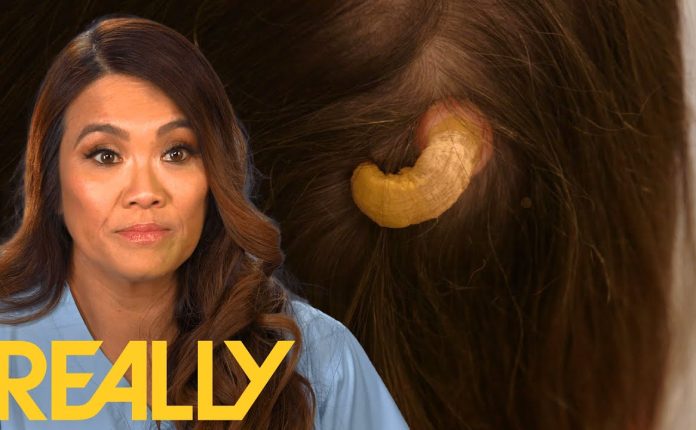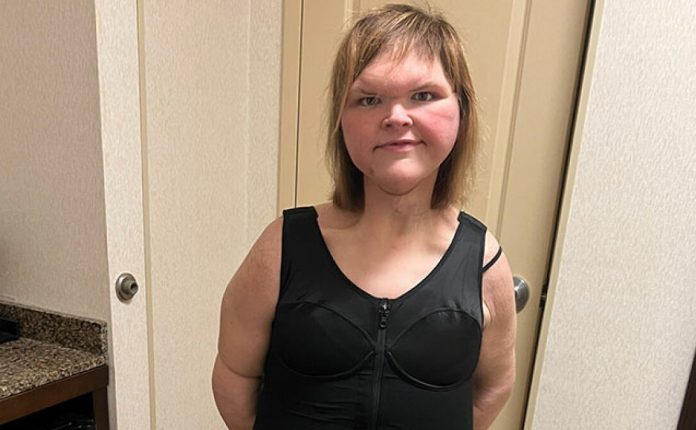

From an early age, Emma found it difficult to pinpoint a fixed sexual identity. Like many people, she started by trying to understand her feelings within traditional labels such as “lesbian” or “bisexual.” However, her experiences did not fit neatly into these categories. There were times when she felt a deep attraction to women, other times to men, and at some points, she didn’t feel attracted to anyone at all. This constant shift left Emma feeling uncertain and isolated in her search for an identity. For years, she couldn’t make sense of these changing feelings, and the struggle was isolating. “I didn’t learn about abrosexuality until two years ago, when I was 30,” Emma wrote in a personal piece for Metro. It was only then that she was able to see herself clearly.
Discovering Abrosexuality

Abrosexuality is a term that describes individuals whose sexual or romantic attraction fluctuates over time. Unlike fixed sexual orientations like heterosexuality or homosexuality, abrosexuality is fluid. This means a person may feel attraction to one gender at one point and then shift to another gender or no attraction at all at another time. According to WebMD, people who identify as abrosexual often experience these changes in intensity and direction. Allowing them to form connections with a range of individuals. The term is derived from the Greek word “abro,” meaning “delicate” or “graceful,” which signifies the gentle, ever-changing nature of those who experience this fluidity. For Emma, discovering the term was a revelation. One that allowed her to embrace her identity fully without the pressure of fitting into a conventional box.
The Emotional Impact of Embracing Fluidity

Realizing that her sexuality was fluid was a huge moment of self-acceptance for Emma. It allowed her to acknowledge and understand herself in a way she hadn’t before. As she explained, one day she might feel like a lesbian, and the next day, she could feel attraction toward men or anyone in between. This constant flux was not a sign of confusion, but rather an inherent part of who she was. “My sexuality was fluid,” Emma writes, reflecting on the moment she came to this understanding. This realization gave her the confidence to live authentically, but it also opened the door to new challenges—particularly in explaining her identity to others.
Challenges of Explaining Abrosexuality to Others

While Emma found peace in embracing her abrosexuality, sharing this aspect of herself with others was not always easy. Many of her friends and family were unfamiliar with the term, and some reacted with confusion or doubt. One of Emma’s friends even texted her asking, “When did you decide this? Is this even a label? I’ve never heard of it.” While Emma appreciated the support, she was also taken aback by the lack of understanding. “I’m not expecting everyone to know what it means – hell, I didn’t until two years ago – but you should always listen with respect,” she wrote. She emphasizes the importance of being open to learning about new identities and, most importantly, treating others with kindness and respect during their journey of self-discovery.
Read More: After Having a 9-Year Sexual Relationship With a Plane, Woman Breaks Up With It
Overcoming Dismissive Reactions

Despite the support from many of her loved ones, Emma has also encountered dismissive responses. Some that challenge her abrosexual identity. Some individuals have told her, “You’re just confused” or “Just say you’re bisexual and be done with it.” These remarks are frustrating, as they fail to acknowledge the validity of her experience and suggest that her fluidity is merely a phase or a confusion. Emma is steadfast in her refusal to be limited by others’ narrow perceptions. “I refuse to be boxed in by someone else’s limited knowledge,” she asserts. For Emma, being able to express her sexuality in a way that feels true to herself is more important than conforming to traditional labels, and she encourages others to be more open-minded and accepting of diverse sexual identities.
The Hope for Future Acceptance

Looking to the future, Emma hopes that being abrosexual will eventually be seen as a normal and valid sexual identity. Just as other sexual orientations like bisexuality and homosexuality are gaining more recognition, she wishes for abrosexuality to be accepted in the same way. “Eventually, I hope that abrosexuality will be seen as normal, just another identity that someone might have,” she explains. While she acknowledges that some people may view her identity as merely “on trend” or confusing, Emma remains optimistic that society will grow to understand and respect this fluid form of attraction. Her ultimate goal is to live in a world where people are free to define their sexuality without fear of judgment or misunderstanding.
Fostering Respectful Dialogue

The key to creating an environment of acceptance for all sexual identities is fostering open and respectful dialogue. Emma’s experience highlights the importance of listening with empathy and respect when someone shares their identity. While misunderstandings are inevitable, Emma emphasizes the need for others to approach such conversations with curiosity and a willingness to learn. “I’m happy to say that the rest of my friends and family have been very supportive of my identity, and have strived to learn more,” she writes. This support is crucial not only for personal growth but also for the advancement of societal understanding. As more people learn about identities like being abrosexual, the hope is that these conversations will become more common and less stigmatized.
Conclusion: Embracing Fluidity in a Changing World

Emma Flint’s journey is a testament to the power of self-acceptance and the importance of embracing one’s authentic identity. While she faced challenges in explaining her sexuality, the support she received from those who listened with respect has been invaluable. Her story serves as a reminder that sexual identity can be fluid and that people should not feel pressured to conform to societal norms. As society continues to evolve, there is hope that more people will be able to express their sexual identities freely. Whether they identify as abrosexual or any other label that feels true to them. In the end, as Emma wisely states, “I’m no longer nervous about my sexuality because it makes sense to me, and in the end. That’s all that really matters.”


